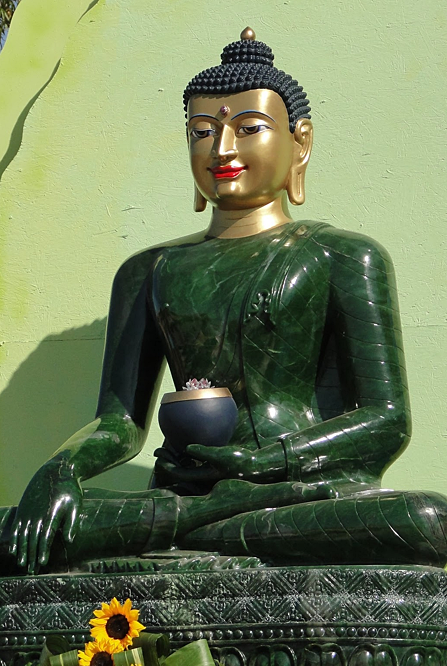S o you’re an atheist, and you’re totally free of religion, right?
o you’re an atheist, and you’re totally free of religion, right?
Oh … maybe. And maybe not.
Say one of your ancestors learned this thing in church a thousand years or so ago:
The Book of Bob 9:17 — Verily, God saith that all men shall roll down the tops of their socks, or they shall never enter into the Kingdom of Heaven, but shall instead be bound screaming in a pit of flaming scorpions, which shall rend them even unto the ends of time.
It’s safe to say that still today, somewhere in the world, someone would be diligently, faithfully, even fiercely, rolling down the tops of their socks. Considering the verse mentions “men,” it’s even possible that whatever little sect was doing it would be crystal clear that only MEN were allowed to roll down the tops of their socks, and that if women did it, it would be an abomination.
We atheists want to think that when we give up the central idea of religion — that a god or gods exist — that we’re immediately free of all taint of religion or faith. But the thing is, both as descendants and residents of this society, which grew up on thousands of years of equally silly but nevertheless solemn pronouncements, a lot of that stuff is still with us. Orders from God, given in a time when nobody knew anything BUT gods, sticks with you. We humans REMEMBER shit. We pass it along.
This remnant religion, because it seems normal to us, having been born into it and started learning it before we could talk, can be out in plain sight and yet still invisible to us. Rather than seeming faith-related, it’s just plain … the way things are.
The abortion debate is a good example. I’ve always believed that every argument against abortion – even those of the “secular anti-abortion” upstarts – springs from the religious idea of ensoulment. If a soul – the “self” part of you – enters the person-to-be at the moment of conception, that person-to-be BECOMES a person at that instant. Terminating an embryo at any stage after ensoulment would be killing a PERSON.
Also, if you believe the implanting of these ghostly inner selves is overseen by God, ending a pregnancy is the equivalent of destroying some of God’s holy property, probably the hell-deserving worst of sins. The condition of the mother – her age or health, desperation or poverty – wouldn’t even come into it.
You don’t actually even have to have an abortion to be guilty. If all you do is stand by and let it happen, you’re every bit as hell-bound. If you know about it, you have to intervene.
Furthermore, if you believe in a blanket fate regulated by an all-knowing, all-seeing, all-wise God, even preventing fertilization would be the same sort of sin. You’d be thwarting God’s will, preventing the arrival of a soul pre-ordained to land on Earth.
And damn, until this moment, I never really thought about the actual mechanics of this nonsense in the heads of believers. But from their point of view, it makes perfect sense, doesn’t it? They’d oppose not only abortion, even in the case of a mother who’d die without it, but would adamantly oppose contraception as well. As they DO.
But abortion is the easy one, isn’t it? It’s right out where we all can see it. Let me toss a few phrases at you to illustrate the less obvious example of stuff hidden in everyday language.
She’s gifted.
You’re blessed.
You just get the one life.
Everything happens for a reason.
It was meant to be.
Things will work out the way they’re supposed to.
What goes around comes around.
If you have a “gift” of intelligence or beauty or athletic ability, just the word alone says you have a thing that’s been GIVEN, by a god or other supernatural force. It came from somewhere, from someone. You might never examine the deeper meaning of what’s being said, but if you use that linguistic formulation, you’ve unconsciously bought into the idea of a god at work in your life. Even more so if you’re “blessed” with that gift.
“You just get the one life” implies there’s a “you” somehow separate from that life, suggesting you enter into that life, and then exit it at some later point, after which you are denied a second shot at it.
“Everything happens for a reason” and “It was meant to be.” Oh, yeah? So what reason is that? From whom does it come? Who “meant” it? Oh, right: God. You may not know what that “reason” is, but it has certainly been arrived at by some superior being, right? If you fall across the tracks and have your legs cut off, there’s a REASON for it, and it’s something good. No matter how much you suffer, it’s surely something good.
“Things will work out the way they’re supposed to.” At the drug and alcohol rehab facility where I work, I saw this on a poster one day: “If things aren’t working out according to your plans, trust that this is the plan.” Whose plan? God’s plan.
“What goes around, comes around.” Karma. Some superior force for balancing the universe – might be God, might be “the universe” – is at work. If the bully beats you up, he’ll get his … somehow, someday.
The point of all this is that some level of religion – or its baby brother superstition – is in us in ways not easy to see. It’s in our language, in our thoughts, and it continues there effortlessly as it is passed along from generation to generation.
It doesn’t have to rise to the level of god-belief – hell, the idea of Luck drives apparently limitless love for the various lotteries and casinos here in the U.S.; if we didn’t believe in luck, we’d never buy a ticket to these games which are so obviously engineered to make most “players” lose.
But by being in our language, religion and superstition infect us with irrational, poorly-considered thoughts and actions, on a everyday basis.
If the human mind was a can of white paint and ancestral religion was deep red pigment poured into it, the fairly secular society we like to fancy we live in would still be fairly reddish. You’d find red-hued religious effects blended into language, law, commerce, medicine, psychology, drug policy, culture, art, government, philosophy, the way we treat animals, how we interact with the environment, and even – or so I sometimes suspect – in science.
Even the most freed of atheists would still carry a faint hue of pink. Not because we’d want to, but because the only way to get that red pigment out is to find it one microscopic particle at a time – one hidden religion-biased belief or assumption at a time – and to inspect, judge and eject it.
When you’re talking the deepest unexamined parts of your mind, or whole societies, that’s a pretty tall order. It would take a lot of people working together to ferret these religious effects out, and help people evict them, both from their own private heads and from larger society.
This would be one of the prime goals of Beta Culture. Not just being atheists as individuals, but removing religion from EVERYTHING … in our own community at the very least.
 Inevitably, in any discussion with those critical of atheism, you’ll hear “You can’t prove there’s no God, therefore atheism is not logically supportable.”
Inevitably, in any discussion with those critical of atheism, you’ll hear “You can’t prove there’s no God, therefore atheism is not logically supportable.”















